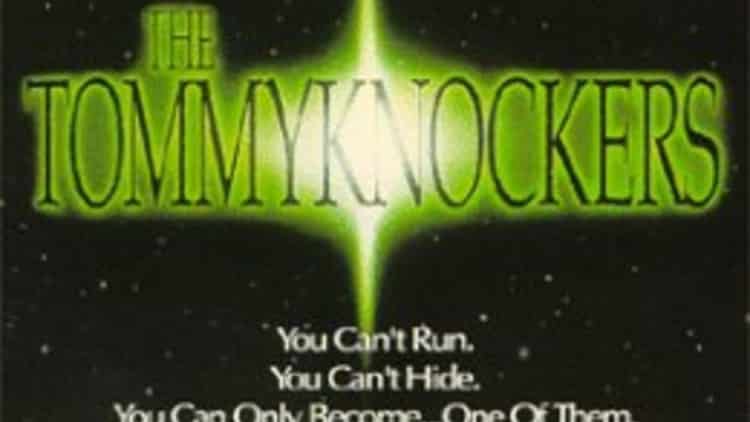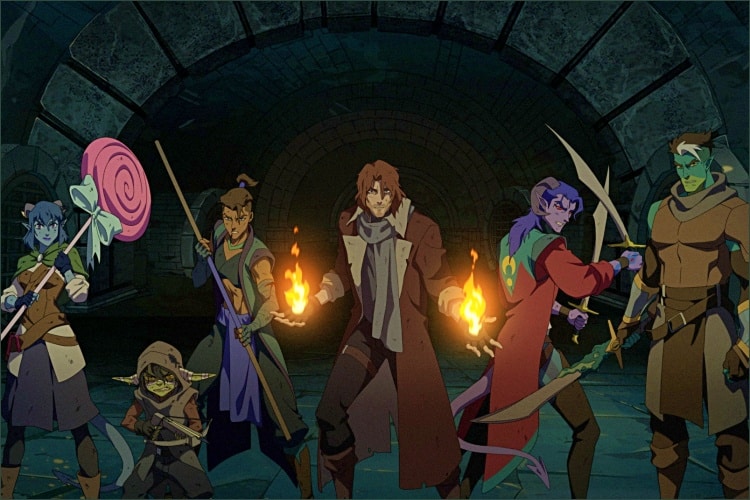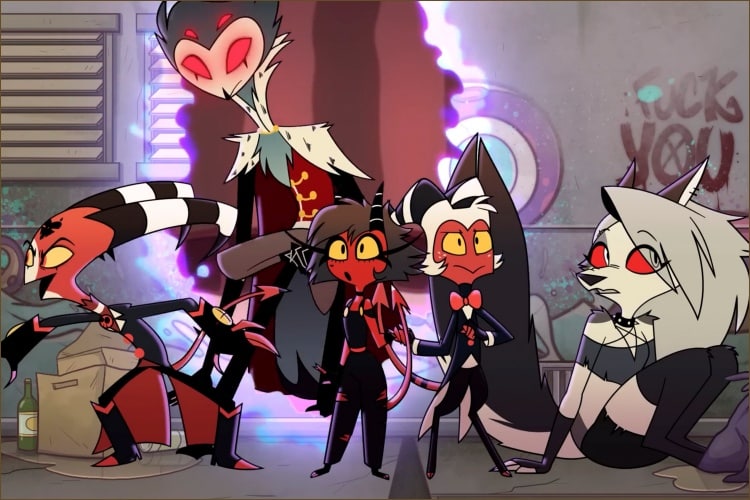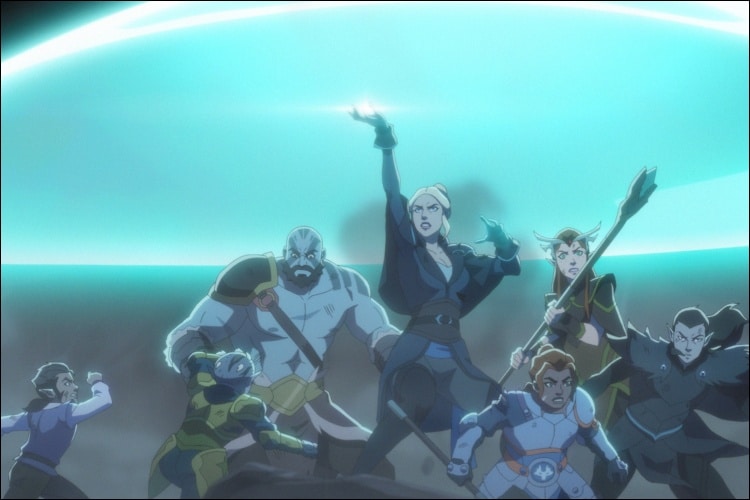HELGENBERGER, SMITS, KING. A MATCH MADE IN HEAVEN, OR HAVEN?
Main Cast: Marg Helgenberger, Jimmy Smits
Director: John Power
When I first read Stephen King’s 1987 novel The Tommyknockers, I was not only disappointed, but a little disgusted. With myself, with King, with the world. It wasn’t enough it was a terrible book, but it was a terrible King book, and on top of that it was a terrible King book about aliens. I’m usually first in line for both of those things, but, damn, if King can’t get aliens right, what’s the world coming to?
I’ve only read the novel once, but I doubt my opinion of it will change it and when I ever read it again.
So when the TV miniseries was announced in 1993, I wanted to skip it. But it’s Stephen King. I’m required by law to watch it anyway.
And, yep, just as I suspected. A crappy novel results in a crappy TV experience.
It’s been a while since that first viewing–23 years–but I was fully expecting my next viewing to be more of the same. Yawn. Bore. Snooze. BOO!!!
Okay, so the TV movie isn’t THAT bad.
It still suffers from a LOT of the things that make King’s TV endeavors so cheesy, and the source material is still BLECH!, but I’ll be honest, they made the most out of what they had to work with here.
Writer Bobbi Anderson (Marg Helgemberger, “CSI”) is out in the woods behind her house one day with her dog Petey, just outside of Haven, Maine, when she literally stumbles over a strange object poking up out of the dirt. She clears away some of the earth and soon discovers something very large and very mysterious is buried there.
As she begins to unearth the object, her friend Jim “Gard” Gardener (Jimmy Smits, “Sons of Anarchy”), returns to Haven from the road where he’s been staying sober and trying to write. Bobby and Gard are both writers to varying degrees of success, but Gard, the poet of the duo, hasn’t written anything worthwhile in years, which sometimes makes it difficult staying on the wagon. After his latest slip, he decides it’s time to go home to Bobbi, his anchor.
But when he gets there and sees what’s happening to her, and not just to her, but to the entire town, his struggle to remain sober becomes even harder–obviously, this was King’s way of writing about his own battle with addiction, and that aspect of the story is one of the stronger themes and works really well in both the novel and the TV movie.
As for what Gard finds when he returns to Haven, Bobbi is looking less and less like herself. Losing weight, pale skin, teeth falling out. But her mind is alive with energy and ideas. She created a device to hook up to her typewriter that then writes her newest novel for her while Bobbi sleeps.
And the effects are spreading.
A local boy creates a teleportation device to use in his magic show. All goes well until he makes his little brother disappear, and is unable to bring him back.
The local postmaster creates a machine that will sort the mail, giving her more time to sleep with her co-worker, Joe. Joe’s wife Becka gets the lowdown on her husband’s after school activities from her favorite TV show, which also gives her instructions on how to rig the TV so Joe is killed the next time he touches is. The local antique dealer creates a machine that polishes silver for lazy folks who can’t be bothered to do it themselves.
Really, it all sounds like it should be an interesting story. But where it falls down is the King part of it.
Is that heresy? Maybe. But bear with me.
One of the things people talk so much about loving in King’s work is how he creates these huge, fully formed communities populated with real people who have real problems and real personalities. And I agree with that. But sometimes, this story being one of those times, it all becomes a bit much.
We spend too much time with these other characters, I think. I understand it’s his attempt to make them real for us, but there’s a difference between a character being fully fleshed out and a character overstaying their welcome, which is what happens in this story. It’s just too much, and it bogs the story down in unnecessary details, some of which don’t even get a proper resolution. Like the story of Becka Paulson. Within the span of 10-15 minutes, she kills Joe, there’s a memorial and the next time we see Becka, she’s sitting in the loony bin, reciting the show’s Tommyknocker’s mantra. And then she’s completely written out of the second half of the show.
If that was the ending we were going to get for this character, it makes all that time we spent with her before feel like a bit of waste. It would have been enough to know Joe was sleeping with his boss, we didn’t need her to be quite that fleshed out.
But that’s the problem with this entire story. Too many characters, too many character backgrounds and subplots, when really all we need, all we WANT, is the alien ship in the dirt, and the dynamic between Bobbi and Gard. This story, both the novel and the TV movie, would have been much better served if King had just focused on that main plot and not spent so much time with the side characters.
Screenwriter Lawrence Cohen has had hits and misses with King’s work in the past–he wrote the script for Carrie in 1976–but I think it’s been more misses than hits (he also wrote It and the adaptation of the brilliant Peter Straub novel Ghost Story, a movie that pales so greatly from the original novel it’s not even funny). And I think in this case, he was trying so hard to remain true to King’s novel, he created this juggernaut of a story that felt, at times, like it had no focus, and yet, even at three hours, still seemed to skip over some pretty major plot points in the stories it obviously felt were important enough to tell.
If we’re going to focus so much on the townspeople of Haven and their own “becoming”, to use the story’s terms, then why skip the detail explaining how Ruth Merril’s dolls all came to life and killed her? What happened to Ev in Bobbi’s shed? After Joe dies, there’s an implied affair between Nancy and her new plaything, Bryant. An implication but no payoff. It’s all just wasted time.
Considering how involved the novel was, I’m not surprised someone–a lot of someones, I’d guess–thought a three hour version of the story was necessary in order to properly tell it, but I say three hours is either not long enough to tell the FULL story–which would have been REALLY boring, but complete–or too long, and the only story we really needed was the one between Bobbi and Gard. Sure, we need to see how the “tommyknockers” are affecting the rest of the town, but that could easily have been explained in a lot less time with a much more focused script.
And then we move on to the acting. I actually liked it. I’ve never been a big Helgenberger fan, but I really liked her in this movie, for the most part. Toward the end, while Bobbi is in “mysterious messianic” mode, it’s a bit overplayed, but regular Bobbi Anderson is well-done and believable.
Smits are Gard, though, is the real star here. I’ve always liked Smits and his portrayals of just about anyone he plays. I think he brings a reality and a real center to his characters, especially here. I saw his struggle with the bottle, and his remorse every time he fails, as real problems in his life. I saw his devotion to Bobbi and his reliance on her as his rock to be his character’s core strengths, and Smits carries many of the weaker moments of this movie like they were no problem at all.
As for the rest of the cast … we’re looking at Robert Carradine, Annie Corley, Traci Lords, Allyce Beasley, Cliff De Young, Joanna Cassidy … all decent actors in minimal roles, but hardly memorable. Let’s face it, as soon as you remember which Carradine is Robert, all you see is Lewis Skolnik You see Allyce Beasley and you think “Moonlighting”.
This is a TV movie ensemble cast, and there’s no way around that. And as such, the performances are all what you’d expect from them, especially considering the bloated script.
And when you look at the credits for the movie’s director, John Power, you see just why this looks and feels so much like a TV movie. It’s all the man’s ever directed. Twenty-five directing credits on IMDB, and all but two have “TV Movie” next to the title. So I guess he was just about as good a choice as any. Until you look at some of those titles. “Charles and Diana: Unhappily Ever After”, “The Sound of Love”, “The Dirtwater Dynasty”. And this is your pick to direct a horror/scifi movie from the most recognizable name in 20th century fiction?
Hmm.
Given the subject of the story, the movie just had this really sweet, down home look and feel, like maybe Power thought he was directing an updated “Andy Griffith Show” movie. But, for me, that’s another problem I run into a lot with King TV adaptations. Even though the source material is all from the same writer, the TV versions always feel like TV versions. And I don’t see why that has to be so. It’s a King movie. Make a King movie. So it’s airing on television, that doesn’t mean the visual style of the thing has to feel like a TV movie, does it? Take a chance, grow a set, and make a damned horror movie for television.
ARGH!!!
I digress. The point here is, I hated this movie the first time I saw it, maybe because I was already biased having disliked the book so much, but found the second viewing to be not AS bad, even though it’s still not all that good. If nothing else, the TV movie adaptation of The Tommyknockers does one thing the novel didn’t; it wraps up the story in only a few hours and lets you get on with your life much sooner.
For that, I am grateful.
–C. Dennis Moore
King on Film
1976-1992 (Carrie to Children of the Corn II: The Final Sacrifice)

C. Dennis Moore is the author of over 60 published short stories and novellas in the speculative fiction genre. Most recent appearances are in the Dark Highlands 2, What Fears Become, Dead Bait 3 and Dark Highways anthologies. His novels are Revelations, and the Angel Hill stories, The Man in the Window, The Third Floor, and The Flip.







Leave a Reply